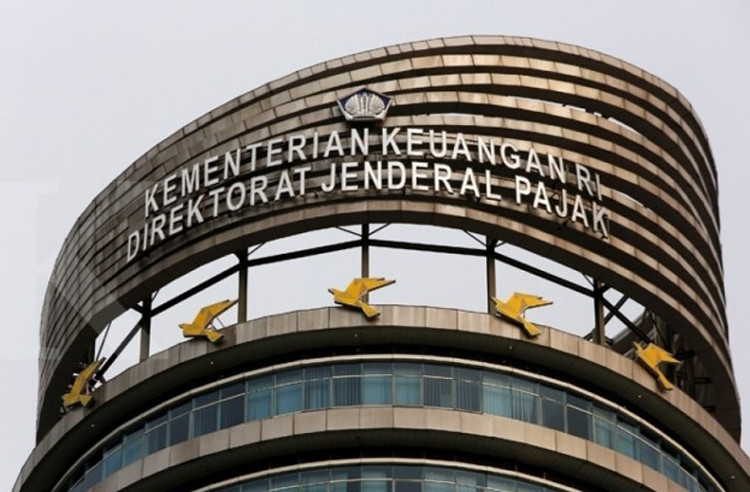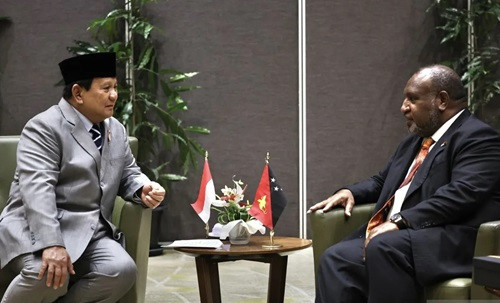Popular Reads
Top Results
Can't find what you're looking for?
View all search resultsPopular Reads
Top Results
Can't find what you're looking for?
View all search resultsThe frontier of a modern tax system: Tax transparency
Tax transparency triggers the surrounding society to become a watchdog for every taxpayer. It constructs a network of control which creates a social pressure for everyone to pay tax.
Change text size
Gift Premium Articles
to Anyone
P
rabowo’s presidential candidate team recently proposed a strategy to increase tax revenue by lowering the tax rate. Adopting from Russia, they claimed that tax cut will attract more people to pay tax hence widening the tax base. Our understanding of how people pay tax however is not that simple. It is way beyond a traditional micro economics assumption that taxpayers are fully rational hence they will comply more if the tax gets cheaper.
In fact, in line with economics theory, taxation theory has move away from assuming that taxpayer is fully rational. Their decision making is not only determined by tax rate but also influenced by other variables such as society and culture, psychology, personality, cognitive ability, etc. For example, Kirchler (2011) contended that the element of trust to the government is important in shaping tax compliance; in a higher (lower) trusted government, the level of tax compliance is high (low).
Empirical research also found that lowering tax rate does not necessarily in line with higher tax revenue. In broader context, it stimulates raising to the bottom issue where countries compete to lower their tax rate putting higher pressure to government revenue and compromising the quality of public services. Rather than simply cutting the rate, increasing tax compliance covers a broader and more fundamental effort.
One of the most vivid ideas to level up tax compliance was brought in President Joko “Jokowi” Widodo’s Nawa Cita program. The approach is to construct a more agile tax institution which has already taken place in most of developed countries. Some pros argue that more resources and flexibility given to the tax office is needed to tackle the tax dodger, yet the cons view that too much power could also invigorate animal spirit of fraud. The cons argument, unfortunately, are more profound despite a huge potential benefit from implementing this strategy for the whole nation. This agenda has never been put into practice until now.
The asymmetric information issue between the tax office and the taxpayers also must be understood as the classical root problem of tax compliance that must be tackled at the first place. When the scale of asymmetric information is huge, taxpayers choose to hide their income and become a free rider. But when the scale is low, the space for taxpayers to hide their income is limited and the force to comply with the tax rule is bigger.
In modern approach, third-party data is considered more effective and cheaper to narrow the asymmetric information compare to audit and law enforcement. The data from financial institutions for example could unearth the wealthy individuals who dodge to pay tax. This international movement of easing financial secrecy has been adopted by Indonesia through the Law No.9/2017 and it shows that Indonesia tax jurisdiction has caught up with the latest international act to increase tax compliance. Nevertheless, the latest innovation of the tax system to increase the compliance is unthinkable and out of the box approach.
Industrial revolution 4.0 has been revolutionaries’ humans’ life and put the idea of sharing information to a new path affecting how people interact, trade and live. This way of thinking has its potential to alleviate the problem of asymmetric information in the area of taxation.
Finland has become the frontier to use this information sharing to narrow the asymmetric information and bring transparency at front to level up tax compliance. Every Nov.1, the Finns celebrate the national jealousy day where the tax office open tax data to all citizens. Basically, the idea is that everybody could know how much income and tax that everybody earns. The tax that is paid by neighbor, college, businessman, politician, etc is open to public. The idea is controversial, because it compromises individual right to keep private information. Nevertheless, the benefit for the whole society is potentially immense.
Tax transparency triggers the surrounding society to become a watchdog for every taxpayer. It constructs a network of control which creates a social pressure for everyone to pay tax. This social pressure is a cheap and effective tool to shape a sound comply tax society. This social pressure can be channeled as a whistleblowing mechanism that every citizen could report a potential free rider in the economy who benefited a lot from economic growth but choose not to give it back to the economy through paying tax. It narrows the asymmetric information between the tax office and taxpayer.
It goes without saying that the tax transparency also acts as the monitoring system for the tax authority itself. The tax fraud so far happens because only certain parties have access to data. The risk perception of being caught will alter if the information is put on the table where everybody can see it.
On top of all, in a longer term, this transparent tax system has its potential to shape a more trustable society where family, peers, neighbors, law enforcer, judges, politician and leaders have nothing to hide. Economic literature has stressed that trust is an important social capital that defines economic development path. Higher trust society stimulates more cooperation among citizens, it promotes simpler contract hence inhibits cost of transaction, penalizes corruptive behavior, and give incentives to positive behavior.
***
The writer is a PhD candidate in Behavioural Economics, University of Nottingham and works for the Directorate General of Taxes, Indonesia’s Finance Ministry










